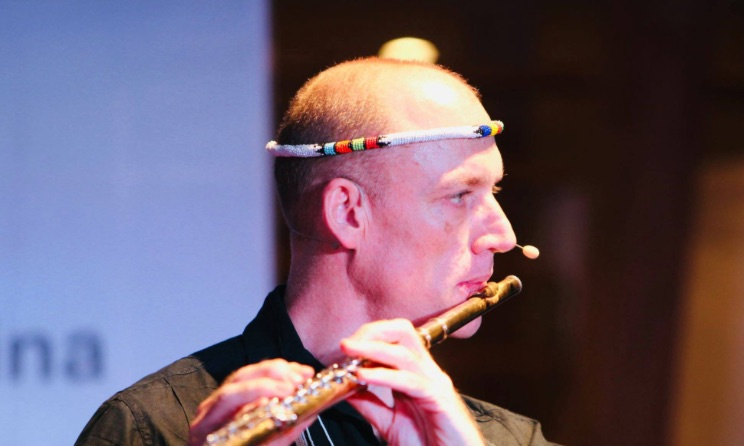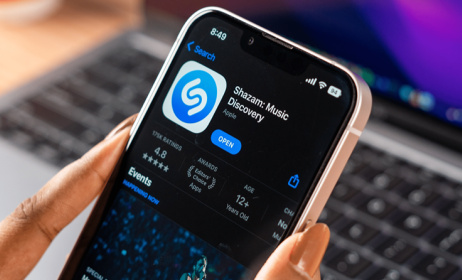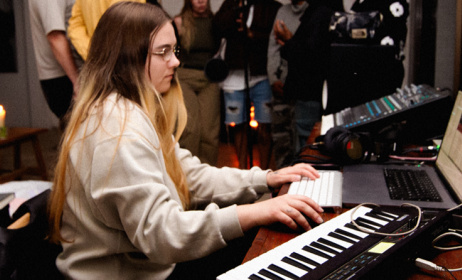Interview: Grammy-winning SA flautist Wouter Kellerman
Grammy Award-winning South African flautist, producer and composer Wouter Kellerman has made incredible achievements since the launch of his music career in 1981. The 60 year old boasts numerous awards and various nominations courtesy of his world and roots music, which he fuses with classical and contemporary sounds.
 Wouter Kellerman. Photo: Facebook
Wouter Kellerman. Photo: Facebook
In November, the instrumentalist was nominated for a third Grammy Award for his 2020 album Pangaea, which he wrote with American composer David Arkenstone.
Kellerman has recorded some 10 albums that feature notable artists like Indian composer and producer Ricky Kej and South African ensembles the Soweto Gospel Choir and the Ndlovu Youth Choir. His music has earned him performances at the 2010 FIFA World Cup in South Africa, Byron Bay Bluesfest (Australia), Expo 2010 (China) and the Rajasthan International Folk Festival (India).
Before his latest Grammy nomination, Music In Africa caught up with Kellerman about his career, composing music during the pandemic and the making of the nine-track Pangaea.
MUSIC IN AFRICA: Congratulations on the release of your 10th album Pangaea. How is the album performing so far?
WOUTER KELLERMAN: The album is doing very well and it has already enjoyed significant airplay all over the world and is also doing well on streaming services like Spotify.
Take us through the making of the album. What do you consider as the most important aspect of the recording process?
We were working together while being on different continents, which can be challenging. So David would send me a bed of sounds, which I would then add melody ideas on the flute and send back. Then we would go through a series of brainstorming and experimentation cycles until the song starts to take shape. I think the most important aspect is to not let it go if it’s not working beautifully, which often takes a lot of perseverance.
What motivated you to record an album with David Arkenstone?
I have known David for a number of years and have been a long-time admirer of his music. So when we both had some time after having out live shows cancelled, it was an ideal opportunity to collaborate.
It didn’t take long to release Pangaea after We’ve Known All Times, which itself was released a year after In A Different Light. It seems like your work rate in the studio has increased.
Yes, it normally takes much longer to finish an album. The pandemic was devastating financially because of the cancellation of live shows, but it resulted in an opportunity to spend time on creating new work. I’ve worked non-stop since the beginning of last year on these projects, which has been an antidote to these difficult times.
What is the theme behind this album?
Pangaea is the name of the supercontinent that existed before it broke apart to form the existing continents. The music calls for unity in these divided times and for a culture of valuing the earth and nature.
What influences the sound and language of your music?
The concept of communicating a friendly and compassionate message, combined with past musical experiences influences the sounds and the way we use the sounds.
You’ve been to Russia, China, the US, Australia, France, India and many African countries. What has your experience with music in different countries been like?
I have been amazed how music really transcends barriers. It is as if we can access our common ancestry and history in the mysterious depths of our minds and relate to music created on the opposite side of the world.
Most modern artists struggle to deliver a good live performance compared to their recorded works, and often face criticism from fans and the media for this. What are your thoughts on that?
In the current music industry, recordings are often exquisitely produced. I feel that in live performances, one shouldn’t try and recreate the recording. Rather, treat it like the different and more spontaneous expression of art that it is – so we usually strip back the layers and perform in a very honest and heartfelt way.
What do toy think about the consumption, or lack thereof, of the world and roots genres in South Africa?
South Africa has such a rich cultural heritage and I would love people to be more aware of these cultural-enriching genres. I feel there’s too much focus on the global pop market, ignoring the incredible riches we have right here.
You have been in the music industry for some time. Do you feel there’s an urgency for industry players and the government to address the challenges faced by artists in the country?
Yes, I do. Artists support the fabric of society and the mental health of people – they perform an essential service. It has been a devastating time for artists and it’s important for all role players to step in and help them survive, so that they in turn can facilitate society’s healthy survival.





























Comments
Log in or register to post comments